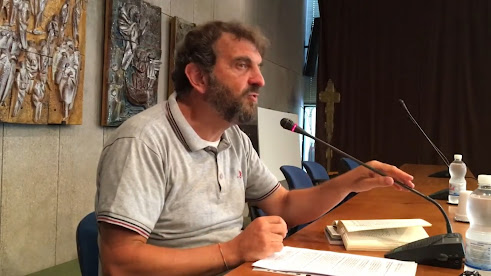(RORATE CAELI. Peter Kwasniewski)
Pope Francis is fond of saying “everything is connected.” Traditionalists have been saying the same thing for the past six decades. We have long emphasized that those who transformed the Catholic liturgy on paper and in practice were also entertaining doctrinal novelties, oddities, and, at times, even heresies. Conversely, a radically changed liturgy has led to the weakening, and occasioned the loss of faith in, any number of central doctrines of Catholicism, or that the loss of reverence for God is bound up with moral drift in every sphere of life. It is not hard, after all, to see that the lex orandi, the lex credendi, and the lex vivendi stand and fall together. The name of Andrea Grillo has gained prominence in recent years. Among Italian liturgists, he has been the most outspoken critic of Summorum Pontificum and the most ardent proponent of Traditionis Custodes. Although he denied having had any role in the drafting of the latter document, his ideas—sometimes in verbatim formulations—are easy to find in the motu proprio as well as its accompanying and implementary documents. In an article published on August 7, “Condoms for Sex and Ecclesiastical Preservation” (a play on words in the Italian original: “Preservativi Sessuale e Preservazioni Ecclesiali”), Grillo reveals the extent to which he is willing to see the Catholic Tradition since the Council of Trent as a gigantic deviation that must now be corrected by more enlightened churchmen. The article is short but packed with revealing statements. I will comment on key passages.
He begins: A singular analogy allows us to discover how, around the issue of contraceptives, the Catholic doctrine of marriage and sexuality has undergone a transformation and polarization completely at odds with nearly two millennia of history. We could say that, faced with the new challenges that the 19th and 20th centuries proposed to the Church, the Church reacted by accepting a polarization and simplification of doctrine on marriage and sexuality that almost disfigured its tradition. Worthy of note is how closely this account parallels the one that Grillo—in company with the cancer phase of the Liturgical Movement—offers of the traditional Roman heritage of divine worship: it, too, underwent (so they maintain) a clericalist transformation and anti-popular polarization divorced from the best of ancient tradition. They think the Tridentine rite disfigures Tradition.
Continue reading …



